WITH

PRESENTS
Treatment of Spine Dysfunctions with PNF
October 15-16
9:00–17:00 (final day:16:00)
9:00–17:00 (final day:16:00)
Part of
The biggest diagnostic group of patients with musculo-skelettal disorders are those with dysfunctions of the spine
The involved morphologic structures can be bones, joints and their surrounding structures (capsule, ligaments, menisci), muscles and tendons, intervertebral discs and peripheral neural structures.
The involved morphologic structures can be bones, joints and their surrounding structures (capsule, ligaments, menisci), muscles and tendons, intervertebral discs and peripheral neural structures.
Impairments on level of structure and function we can find:
Overuse syndromes: as seen in physically heavy working persons
Syndromes of arthro-muscular disorders: Lumbago, Facets syndrome, functional instabilities
In most of the cases the patient wants to see the (orthopaedic) physician because pain is limiting activities of daily life. Example: a patient is usually not going to see the doctor because the rotation of the thoracic spine is reduced but
Pains is an important treatment parameter: Usually patients are motivated and cooperative (as long as the pain is influenced positively by physical therapy). For the PT pain is also a good reference for the treatment success.
Limitations in daily life activity are a result of deficits in the senso-motor system (causal impairments). One of the most existing causal impairments is the reduced range of motion on the background of structural changes and/or pain.
Other impairments :
- as result (of nociception)
- Deformations of bones and their consequences: skoliosis, deformation after Spine fractures
- Degenerative processes: Arthrosis, disc hernias, osteoporosis....
- Hypermobilities and structural based instabilities: hyper mobile Cx or Lx
- Inflammatory / infectious processes: Rheumatism, M. Bechterew, Arthritis....
Overuse syndromes: as seen in physically heavy working persons
Syndromes of arthro-muscular disorders: Lumbago, Facets syndrome, functional instabilities
In most of the cases the patient wants to see the (orthopaedic) physician because pain is limiting activities of daily life. Example: a patient is usually not going to see the doctor because the rotation of the thoracic spine is reduced but
Pains is an important treatment parameter: Usually patients are motivated and cooperative (as long as the pain is influenced positively by physical therapy). For the PT pain is also a good reference for the treatment success.
Limitations in daily life activity are a result of deficits in the senso-motor system (causal impairments). One of the most existing causal impairments is the reduced range of motion on the background of structural changes and/or pain.
Other impairments :
- Strength and Endurance caused by lack of movements (inactivity atrophy) or by pain induced inhibition
- Proprioception (ligamental lesions, post OP,)
- Coordination (either as cause for Overuse syndromes or as consequence of pain processes)
- Balance (as consequence of lack of strength/endurance/coordination/ROM)
- Neuropsychological functions and symptoms: fear, lack of self-confidence,
- Every orthopaedic dysfunction is related to changes in the neuromuscular coordination:
- as result (of nociception)
Workshop Topics:
- Nociception and its effect on the somato motoric system
- Instability
- Introduction to PNF Techniques
Lumbar Spine:
- PNF for mobilisation
- PNF for stabilisation
- Hands off Exercises - Home work
Ilio sacral joint:
- PNF for mobilisation
- PNF for stabilisation
- Hands off Exercises - Home work
Thoracic Spine:
- PNF for mobilisation
- PNF for stabilisation
- Hands off Exercises - Home work
Cervical Spine:
- PNF for mobilisation
- PNF for stabilisation
- Hands off Exercises - Home work
Meet the tutor
- Marcel GrzebellusPT, IPNFA Senior Instructor, Germany
Qualifications:
Abstract:
Publications:
Instructional Video „PNF-Pattern BASIC", 1998 (with Carsten Schäfer)
Instructional Video„PNF-Pattern PLUS", 2002 (with Carsten Schäfer)
Article "Biomechanische Aspekte der Irradiation" (Biomechanic Aspects of Irradiation) in "Physiotherapeuten" 9/98 (with Carsten Schäfer)
Article „Ein Fall für Vier: Retropatellarer Schmerz. Wieder fit fürs Joggen werden. physiopraxis 2008; 3: 29-30
Thieme e-learning PNF-Grundkurs" together with Nicola Fischer und Carsten Schäfer, 2014
Article: „Hands-on: PNF-Techniken für die Schulter", physiopraxis 09/2015, 30-34
- Physiotherapist since 1984
- PNF-training in Berlin, Bad Ragaz and Vallejo/USA
- since 1992 Instructor of the International PNF Association (IPNFA)
- since 2005 IPNFA Senior Instructor
- many postgraduate courses in Manual Therapy Bobath, Functional Kinetics, Brügger, Myoreflextherapy etc.
Abstract:
- Teacher's Training for primary school in Frankfurt/Germany
- Education as physiotherapist in Mainz
- IPNFA-Senior-Instruktor; teaches all IPNFA course levels including qualification of IPNFA-instructors
- Co-owner of private physiotherapy outpatient clinic and study center in Radolfzell/Germany
- Teacher for PNF at Zurich University for applied sciences Winterthur/Switzerland
- IPNFA courses and PNF workshops in many countries worldwide
Publications:
Instructional Video „PNF-Pattern BASIC", 1998 (with Carsten Schäfer)
Instructional Video„PNF-Pattern PLUS", 2002 (with Carsten Schäfer)
Article "Biomechanische Aspekte der Irradiation" (Biomechanic Aspects of Irradiation) in "Physiotherapeuten" 9/98 (with Carsten Schäfer)
Article „Ein Fall für Vier: Retropatellarer Schmerz. Wieder fit fürs Joggen werden. physiopraxis 2008; 3: 29-30
Thieme e-learning PNF-Grundkurs" together with Nicola Fischer und Carsten Schäfer, 2014
Article: „Hands-on: PNF-Techniken für die Schulter", physiopraxis 09/2015, 30-34
Fee and Application
For applications before the 1st of August, the full workshop is €300.
After this date, the fee will be €340
Advance Reservation Fee - €75
€60 Discount for Educational Day (14.10) participants
After this date, the fee will be €340
Advance Reservation Fee - €75
€60 Discount for Educational Day (14.10) participants
You will receive a confirmation email within a week after submitting your application. To be officially registered as a participant, you must pay the enrollment fee.
BANK Payment Details:
IBAN: BG93 RZBB 9155 1005 6885 78
Holder: Physiognosis EOOD
Basis: AGM-01
IBAN: BG93 RZBB 9155 1005 6885 78
Holder: Physiognosis EOOD
Basis: AGM-01
Location
Sofia
2 "Donka Ushlinova" Str.
Garitage Park, building 2
2 "Donka Ushlinova" Str.
Garitage Park, building 2
Contact us
If you need to get in touch with us, send an email to info@physiotherapy.bg
All photo and video materials belong to their owners and are used for demonstration purposes only. Please do not use them in commercial projects.

